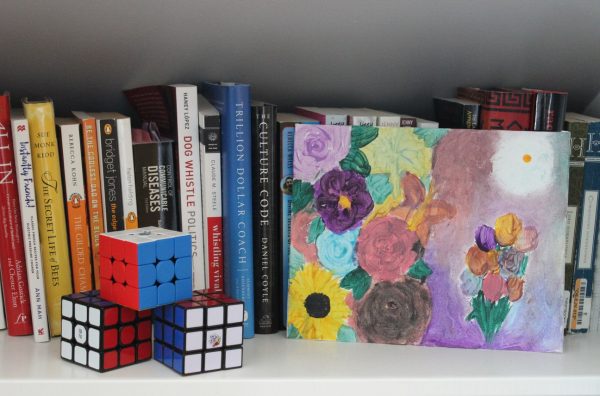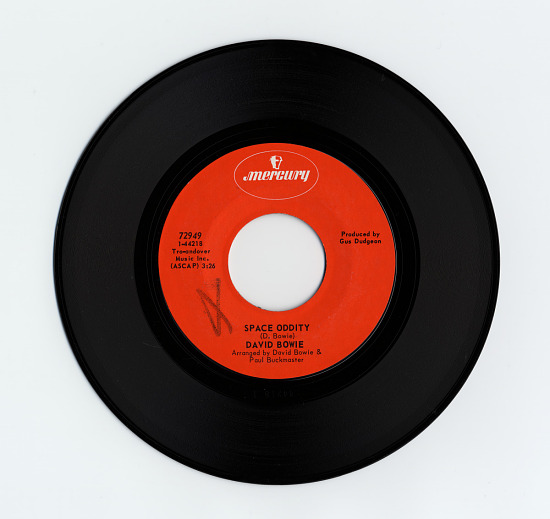Notebook: “The Rehearsal”
Episode One: Orange Juice, No Pulp
Much like in Nathan Fielder’s award-winning comedic masterpiece “Nathan For You”, the premise of Nathan’s new docu-comedy reality series revolves around the idea of helping out people with their real-life dilemmas. Immediately a unique comedic style is established, instantaneously separating “The Rehearsal” from anything else on television. We meet Kor Skeet, a teacher living in Brooklyn who likes to go to bars and play trivia with his team. In his past, he’s been wrapped up in guilt because he lied to his trivia friend—Tricia—about having a master’s degree. Unable to stand his own remorse, he turns to Nathan for help. Nathan takes on the challenge by building sets that are thoroughly identical to the setting he wishes to replicate. Nathan’s set design team builds an exact replica of the bar where Kor plans to come clean, and Nathan then starts crafting flow charts mapping out every single possible outcome of the night.
With countless hours of sessions spent practicing this singular interaction, Kor is now ready for the real confession. After the immense effort put into the rehearsals, none of it seemed to matter; Tricia was quick to forgive. This makes you wonder how much unnecessary worrying we put ourselves through. The premiere episode is quite a bit longer than any other in the six-episode season, speaking to the fact that this show is constantly switching the format at all times with no real direction.
Episode Two: Scion
In episode two, we meet Angela, a woman in her 40s who is ready to have children. She hopes to find out if she should be a mother through another elaborate set up orchestrated by Nathan. Religious and strongly opinionated, her viewpoints on certain things are controversial, to say the least. According to her, Halloween is the highest satanic holiday of the year, with “underground sacrifices made by Satanists”, and google is censoring content because they are controlled by the devil.
Nathan’s crew has set up a way to have child actors enter and exit the home being used for the experiment so that child labor laws aren’t being broken. Unfortunately, it proves difficult for Nathan and Angela to find a husband that’s right for her.
He decides that maybe the only way for it to work is if he takes over as father. After spending time with the fake child named Adam a few days earlier, he started to feel a real connection with them.
After his decision, he begins calling the parents of every child actor—asking for permission to let him take over as the father for this project. It’s the most genuine I’ve ever seen Nathan across all his work.
While it feels like “The Rehearsal” never knows what it wants to be, you slowly begin to realize that’s the point. It’s beyond reality, it’s Nathan’s platform of learning. Like the show itself, Nathan might not know exactly what he wants to be either.
Episode Three: Gold Digger
Episode three moves out of Angela’s fake home and back into the world of confrontation. The main plot of this episode is about Patrick, a man who wants his rightful share of the inheritance of his dead grandpa and needs to talk to his brother about it.
Nathan begins rehearsing with Patrick like he always does, but the manipulation here becomes more than we’ve ever seen. He begins to cheat the system, placing actors into the reality of Patrick’s life. The ethics start to get into the question when he hatches a plan to plant an old-aged man into Patrick’s life, only to later “kill him off” to help Patrick gain perspective and re-experience these feelings of losing someone old—making it easier for him to show these emotions to his brother.
This episode is a great example of what ultimately lies at the heart of this series: can you really rehearse your way out of difficult situations? Later in the episode, Patrick leaves and never speaks to Nathan again. After a practice attempt where Patrick started breaking down into tears in conversation with his fake brother’s actor, Nathan narrated that “sometimes the rehearsal is enough.”
What I love about Gold Digger is its place in the show as a defining episode for presenting the dilemma at the core of this series. In a project that is meant to make you more prepared for reality than anything ever seen before, it’s immensely fake at its core. Every implication of reality comes with subtle cameras, set designs and a laughing audience.
Episode Four: The Fielder Method
In a show where the beauty and entertainment come from the strange and absurd nature—this episode is all of that and more, culminating in the most absurd episode of the entire series.
Wanting to hire actors to work for his show, Nathan opens up an acting school where he teaches these aspiring actors the “Fielder Method”. He assigns each actor a “primary” and tells them to semi-stalk their primary to understand what they do on a day-to-day basis. During this process, a student of Nathans named Thomas thinks that this whole method is wrong. Nathan, perplexed by the claim, decides to push his rehearsing philosophy one step further. He decides to dress up and act as Thomas while hiring actors to play the other students in the class and even himself. During this insane sequence where Nathan sits as one of his students desks and listens to an actor who is playing himself talk and teach, he begins to understand where Thomas is coming from. Nathan realizes he’s wrong in the most Nathan Fielder way possible. Once a producer comes in and pushes the students in the classroom along with Nathan (again, these students and the producer are all actors in this scene), Nathan feels forced to sign these papers the producers are giving him. He starts to realize the manipulation and toying he has enacted on all of the people in his shows in the past.
Returning home to Angela and Adam after this realization, Nathan grows unhappy when the actor playing Adam doesn’t show much emotion after he returns after nine (fake) years. Nathan decides it’s best to restart when Adam was just six, but this time Nathan won’t go away.
Episode Five: Apocalypto
Apocalypto functions as the prelude to the series finale. Things get heated when Nathan wants Adam to get more Judaism taught to him since Nathan is Jewish himself. After Nathan’s mom visits and meets Angela, she tells Nathan that she is disappointed in him for not giving Adam more Judaism based education. He decides to go behind Angela’s back and take Adam to a Jewish tutor without telling her.
Nathan, wanting some alone time, goes to his warehouse back to the replica bar from the first episode. Looking over old footage, he finds clips of Angela talking to the actor of Adam and not actually Adam himself, and essentially abandoning the rehearsal in its entirety. Nathan confronts Angela about this, and Angela pushes back by saying she doesn’t get enough say in the matter. It’s such an intriguing argument because while Nathan has designed this whole project for her, there is some truth in Angela’s resentment. After all, everything happens because Nathan gives his approval. After Angela decides to leave the show, it makes you wonder who’s to blame. A part of me goes back to relating the experiment to Nathan himself. It’s no longer about putting the spotlight on someone else. Heading into the season finale, Nathan decides to stay and raise Adam himself.
Episode Six: Pretend Daddy
The finale ties together everything that makes this series so special while still saving room for season two with substantial potential.
A particular child actor for Adam named Remy begins to develop a relationship with Nathan outside of the show. Calling Nathan “Daddy”, it’s clear the fatherless kid is having trouble separating the rehearsal from real life. In a heartbreaking confrontation, Nathan has to meet with the child and his mom and talk through this troubling relationship.
After speaking with Remy, Nathan wants to look at things from the outside in. Like in episode four, he gets in the shoes of Remy’s mom and has a different child actor for Adam play Remy. Nathan finally shows us the real emotion that we’ve been denied for so long, having an awkward conversation with the actor playing Remy. Whether this moment is defined as progress or a step in the wrong direction, it’s nonetheless a fascinating progression of character. While he’s in the role of Remy’s mom, Nathan starts telling the child actor that he’s their dad. Tears start to form in Nathan’s eyes, and the child actor gets worried because this isn’t part of the scene.
Yet again, Nathan leaves us perplexed and confused as the credits roll one last time. In a way, he seems farther away from himself than ever before—however, deep down a part of me sees hope in those teary eyes. As Nathan says to fake Remy when he was crying about wishing Nathan was his real dad, “I think it’s a good thing that you’re sad, because it shows that you have a heart.”









